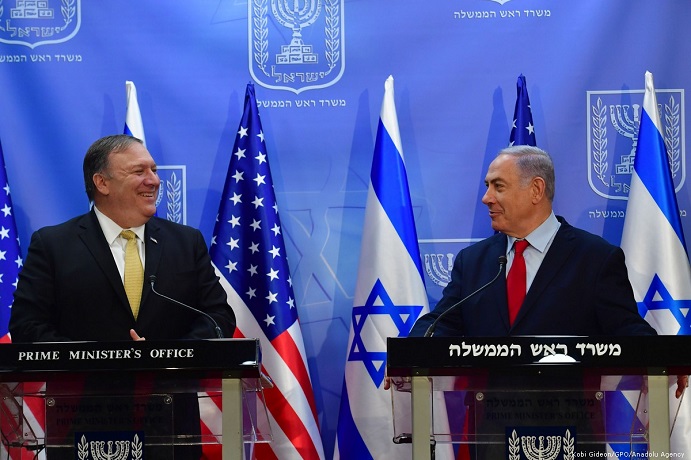
Middle East Monitor / March 6, 2020
The US State Department on Tuesday approved the sale of up to eight Boeing KC-46 aircraft and related equipment worth an estimated $2.4 billion according to a statement released by the Defence Security Cooperation Agency (DSCA).
In addition to the aircraft, Israel requested up to 17 Pratt & Whitney PW4062 turbofan engines and up to 18 MAGR 2K-GPS SAASM navigation systems. Also included are AN/ARC-210 U/VHF radios, APX-119 Identification Friend or Foe transponders, spare and repair parts, maintenance, training and other related support. The principal contractors are Boeing for the aircraft and Raytheon for the MAGR 2K systems.
“The proposed sale further supports the foreign policy and national security of the United States by allowing Israel to provide a redundant capability to US assets within the region, potentially freeing US assets for use elsewhere during times of war,” the DSCA said.
“Aerial refuelling and strategic airlift are consistently cited as significant shortfalls for our allies.”
World Israel News explained that, should the sale go through, then the mid-air refuelling aircraft will be paid for by Israel from the annual $3.8 billion annual financial aid it received from the US. Israel currently relies on an aging fleet of heavily modified Boeing 707s, which have been modified by Israel Aerospace Industries for aerial refuelling. Tel Aviv can expect to receive the new jets in 2023 should the deal pass Congress.
According to a report by Sputnik, US officials have maintained that the proposed sale of the tankers “will not alter the basic military balance in the region”, but the move will drastically boost Tel Aviv’s ability to confront Iran on its territory. Currently, Israel’s fighter jets are limited in their ability to land strikes against Iran, such as its nuclear sites, unless it uses long-range missiles or has a back-up in the form of an aerial tanker such as the KC-46A Pegasus. Israel continues to carry out routine air strikes against targets linked to Iranian interests in Syria and at least one in Iraq.












